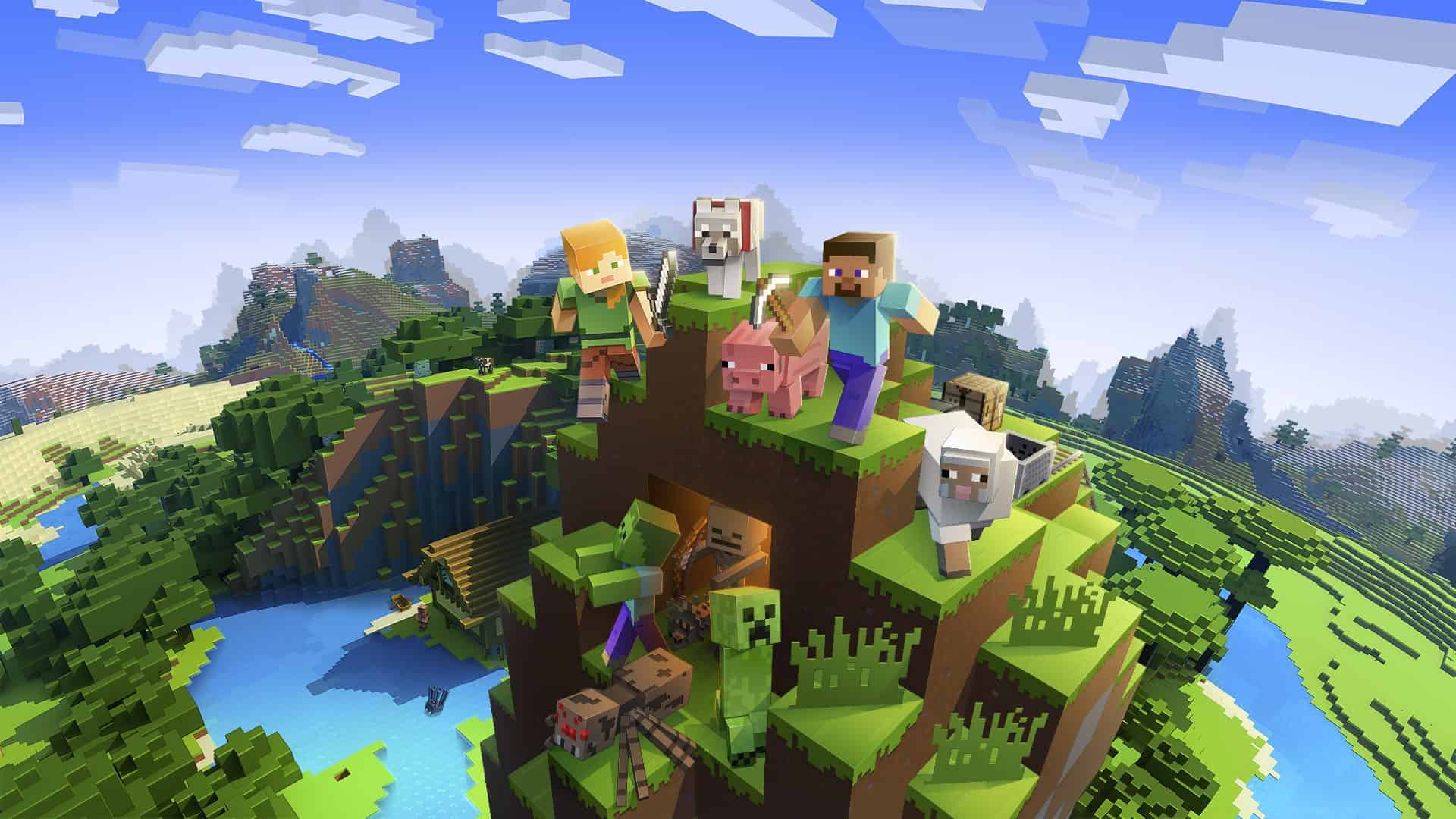Minecraft villagers play a crucial role in the game’s economy and world-building. These unique characters can take on various jobs, each with its own set of trades and benefits for players. Villagers can have up to 15 different professions, ranging from farmers to librarians, each offering unique items and resources through trading.
Villager jobs add depth to the Minecraft experience. They create a living, breathing world where players can interact with NPCs in meaningful ways. By understanding villager professions, players can make the most of their interactions and gain access to rare or useful items.
Exploring villager jobs opens up new possibilities for players. It allows them to build thriving villages with diverse economies. Players can strategically place job site blocks to assign specific professions to villagers, tailoring their village to meet their needs and preferences.
Minecraft Villager Jobs: Explained
In the world of Minecraft, villagers aren’t just idle NPCs. They play a vital role in the game’s economy and offer a plethora of useful trades to players. Each villager has a specific profession, which determines the type of items they buy and sell. These professions are linked to specific job site blocks that villagers can claim.
Here’s a quick rundown of some of the most common villager jobs and the blocks associated with them:
- Farmer: Trades food-related items and is linked to the Composter block.
- Librarian: Trades enchanted books and is linked to the Lectern block.
- Cleric: Trades potions and Redstone-related items and is linked to the Brewing Stand block.
- Armorer: Trades armor and is linked to the Blast Furnace block.
- Toolsmith: Trades tools and is linked to the Smithing Table block.
- Weaponsmith: Trades weapons and is linked to the Grindstone block.
- Fletcher: Trades bows and arrows and is linked to the Fletching Table block.
- Butcher: Trades meat and is linked to the Smoker block.
- Cartographer: Trades maps and explorer maps and is linked to the Cartography Table block.
- Fisherman: Trades fishing-related items and is linked to the Barrel block.
- Shepherd: Trades wool and is linked to the Loom block.
- Leatherworker: Trades leather armor and is linked to the Cauldron block.
- Mason: Trades stone-related blocks and is linked to the Stonecutter block.
Understanding villager jobs and their associated blocks is crucial for establishing a thriving village and unlocking valuable trades. You can encourage villagers to take on specific professions by strategically placing job site blocks near unemployed villagers. By fostering a diverse and productive village, you’ll gain access to a wide array of resources and enhance your overall Minecraft experience.
Key Takeaways
- Villagers can have 15 different jobs, each with unique trades
- Job site blocks determine a villager’s profession
- Trading with villagers provides access to rare and useful items
Human: Summarize all Google Pixel 8 Pro reviews
Understanding Villager Professions
Villager professions in Minecraft shape how players interact with villages. Each job type offers unique trades and requires specific blocks to function.
Types of Professions
Minecraft has many villager jobs. Farmers grow crops and trade food. Fishermen catch fish and sell fishing gear. Shepherds work with wool and dyes. Librarians offer books and enchantments. Clerics deal in magical items.
Other jobs include armorers, weaponsmiths, and toolsmiths. These craft and sell various equipment. Butchers trade meats and cooked foods. Leatherworkers offer leather goods and saddles. Masons work with stone and bricks.
Some villagers have no job. These are called nitwits or unemployed. Players can’t trade with them.
Job Site Blocks and Employment
Each profession needs a special block to work. This is called a job site block. Farmers use composters. Librarians need lecterns. Smiths use different types of furnaces.
Villagers pick up jobs by linking to these blocks. If a player breaks the block, the villager loses its job. Placing a new job block can give a villager a new profession.
Here’s a quick list of some job blocks:
- Composter for Farmers
- Barrel for Fishermen
- Loom for Shepherds
- Brewing Stand for Clerics
- Smithing Table for Toolsmiths
Interactions and Trades
Players can trade with villagers for useful items. Each profession offers different goods. Trades often need emeralds as payment.
Librarians sell enchanted books. These can power up tools and armor. Farmers trade crops and seeds. Fletchers offer bows and arrows.
Trading helps villagers level up. Higher level villagers offer better deals. Some rare items like name tags are only available through trading.
Players should check different villagers. Each one has unique trades. Finding good deals takes time but can be very rewarding.
Economic Impact and Village Dynamics
Villagers play a key role in Minecraft’s economy. They affect player trading, village growth, and game progression. Their jobs and trades shape the world’s economic system.
Village Economy and Player’s Role
Players can boost the village economy by trading with villagers. Each job type offers unique items. Farmers sell crops and food. Clerics trade magic items. Weaponsmiths offer tools and weapons.
Trading helps villagers level up. This unlocks better deals. Players can also build new job blocks. This creates more jobs for villagers.
The village economy grows as players interact more. They can get rare items through trades. This includes enchanted books and special potions.
Villager Levels and Advancement
Villagers start as novices. They gain experience from trades. As they level up, they offer better items.
Levels range from novice to master. Each level unlocks new trades. Higher levels mean better deals and rarer items.
Players can speed up leveling by trading often. Building more job blocks also helps. This creates a bigger, more diverse economy.
Master villagers offer the best trades. They might sell diamond gear or powerful enchantments.
Threats to Villagers and Player Interaction
Villagers face dangers from monsters and illagers. Players can protect them by building walls or lighting up the area.
Zombies can turn villagers into zombie villagers. Players can cure them with weakness potions and golden apples.
Illagers attack villages in raids. Players who defend villages get special rewards. This includes the “Hero of the Village” effect.
Safe villages grow faster. More villagers mean more trades and a stronger economy.
The Nitwit: A Unique Case
Nitwits are special villagers. They wear green robes. Unlike others, they can’t get jobs or trade.
Players can’t give nitwits professions. They don’t interact with job blocks. Nitwits still count towards village population.
Some players see nitwits as useless. Others keep them for breeding or decoration. They add variety to village life.
Nitwits show that not all villagers work. This makes the village feel more realistic and diverse.
Frequently Asked Questions
Minecraft villagers have various jobs and professions. These roles shape how players interact with them in the game. Let’s explore some common questions about villager jobs.
What are the different types of villager professions available in Minecraft?
Minecraft has many villager jobs. Some examples are armorer, butcher, and cartographer. Each job type offers unique trades. Armorers deal in chains and armor. Butchers trade meats and stews. Cartographers sell maps and compasses.
How do Minecraft villagers acquire their professions?
Villagers get jobs by being near job site blocks. These blocks are tied to specific professions. For instance, a cauldron makes a villager become a leatherworker. If no job blocks are around, villagers stay jobless.
What are the functions of job blocks in determining villager roles?
Job blocks are key to villager professions. Each job has its own block. When a villager is close to a job block, it takes on that job. This system lets players choose which jobs they want in their village.
Can you change a villager’s profession, and if so, how?
Yes, players can change villager jobs. To do this, remove the current job block. Then place a new job block for the wanted profession. The villager will switch to the new job if it hasn’t traded yet.
What criteria determine the trade offers provided by different villager professions?
Trade offers depend on the villager’s job and level. Higher-level villagers give better trades. Each job has set items it can trade. For example, butchers trade meats and stews.
Which factors impact villager breeding and job assignment in Minecraft?
Villager breeding needs beds and food. Job assignment happens when jobless villagers are near job blocks. The village size and number of job blocks affect how many villagers can work. Nitwit villagers can’t get jobs, but they can still breed.






